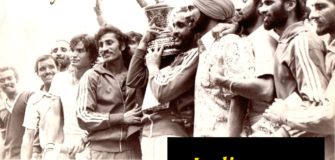1975 HOCKEY WORLD CUP: UNFANCIED INDIA STUCK TO THE TASK, TO SCRIPT GLORY
Share
India set off for Kuala Lumpur in a low-key atmosphere. There was no hype and expectation tepid. Certainly pale compared to that in 1973 when the team looked good to win the title.
A departure story fell to the bottom of the page in the Times of India which covered the team’s flight to the Malaysian capital from Chennai. It was headlined: “Indian team leaves for World Cup with hope in their hearts”.
Hope, it was, that carried the team all the way to the title in a fiercely fought, though fascinating tournament affected by torrential rain but managed admirably by the Malaysian Hockey Federation which juggled the schedule and prepared playable surfaces amid the ravages of the weather.
Much attention was diluted by the sad state of affairs in the administration. Infighting saw two factions of the IHF, prompting the IOA to take control and send the team under its banner. Bad enough, the World Cup which had been awarded to Bombay (now Mumbai) was moved to Kuala Lumpur because of administrative anarchy.
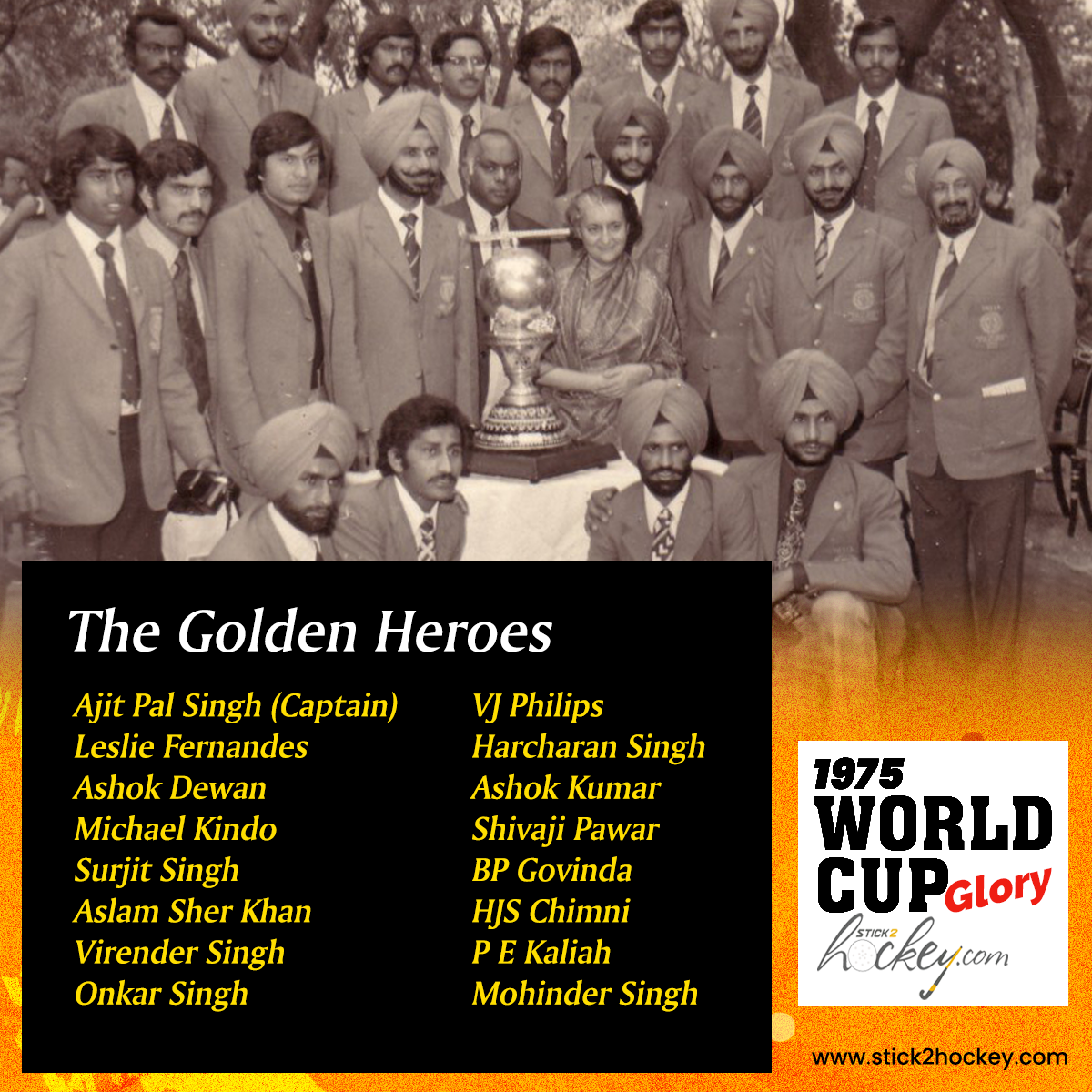
Victorious Indian team
The build-up to the World Cup was eclipsed by the India-West Indies cricket series and hockey was all but under the radar as the team set out to better their silver medal at Amsterdam 1973 where they lost the final to hosts Netherlands in a heart-breaking tie-breaker.
The team, unlike two years earlier, was far from the best. It was all too obvious that the quota system had its say. There were some queer selections but the core group comprised players like captain Ajitpal Singh, forwards Govinda, Ashok Kumar, VJ Philips and Harcharan Singh and full backs Surjit Singh and Michael Kindo who were world class.
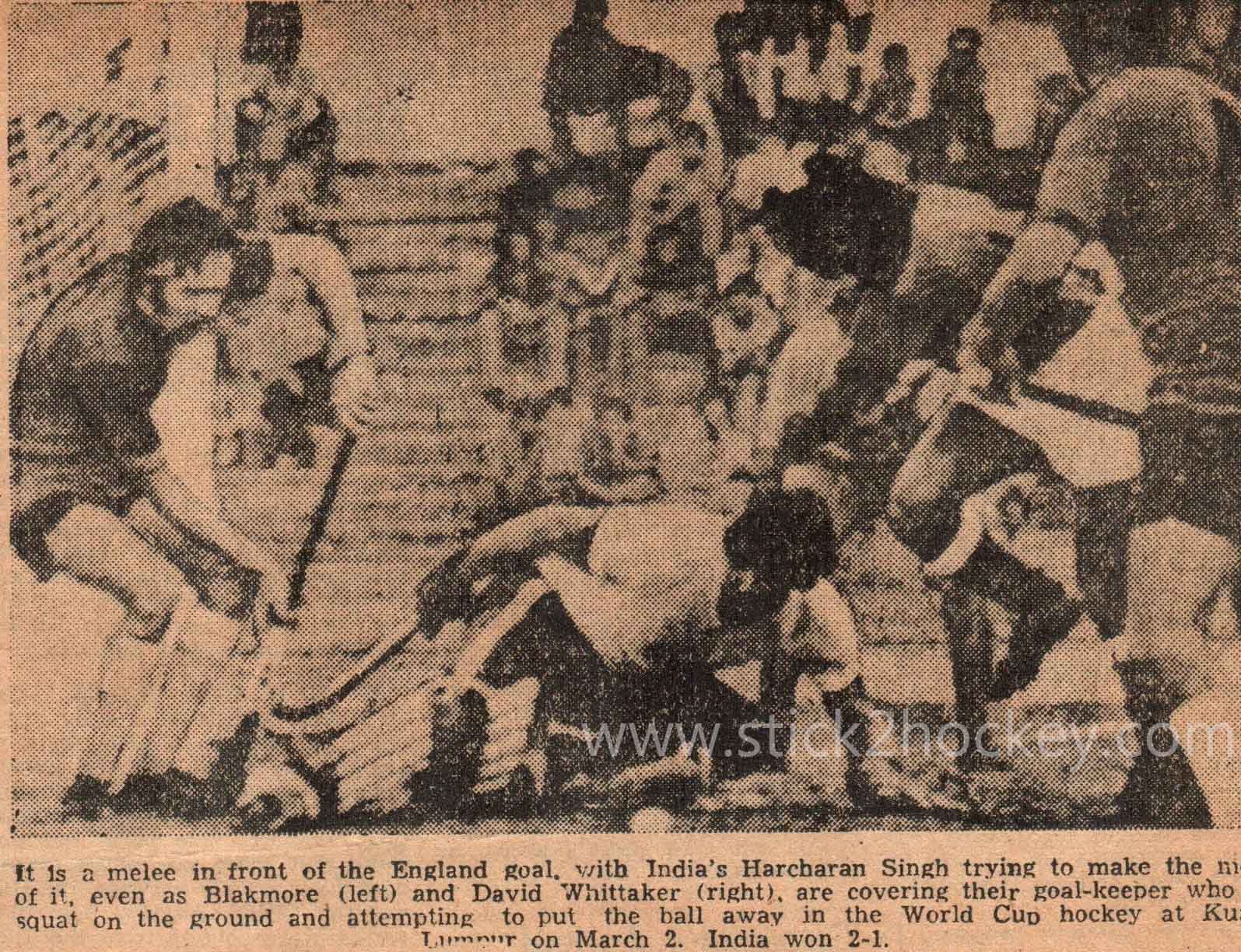
Action packed India-England encounter
There were able deputies too such as Aslam Sher Khan who would be immortalized for feats at the event and a little known Mohinder Singh who would succeed where India failed at Amsterdam – converting penalty strokes with minimum of fuss.
The team, though, began in scratchy manner. A 2-1 win over England was achieved only after scoring both goals from penalty strokes. The next match against Germany was abandoned with India leading 1-0 and replayed as the concluding pool match.
Playing Australia next, India were perhaps relieved at the final hooter with the scores level 1-1. But with Ghana and Argentina coming up next, hopes soared at sealing a semifinal spot with a degree of ease.
A 7-0 win over Ghana kept things on course but what came next shook the Indian camp. A 1-2 defeat to Argentina opened up the possibility that India may not make the semifinals for the first time in a major championship.
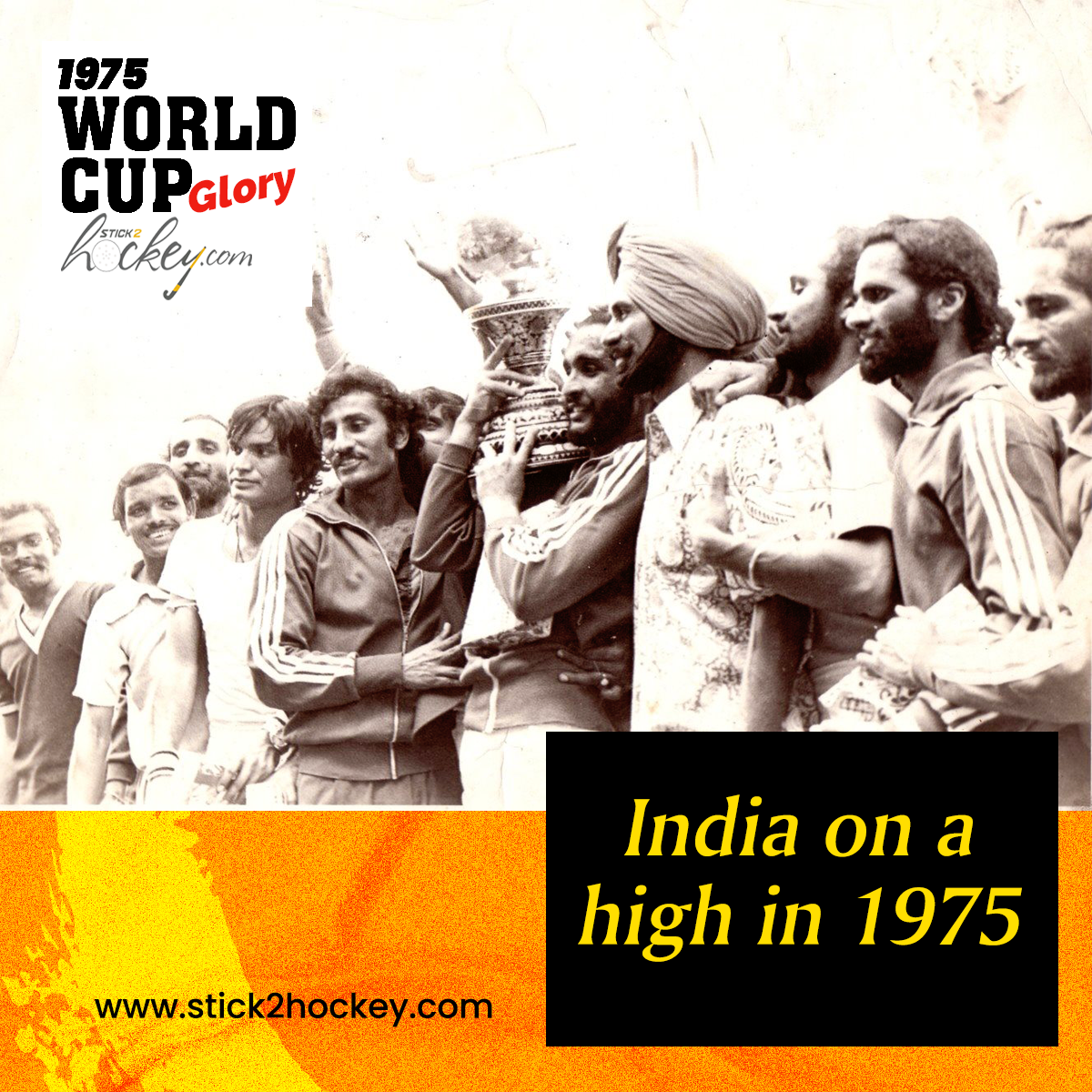
1975 World Success story
But the tide turned. The team came to terms with itself and put in a scintillating performance in a 3-1 win over West Germany to make the last four.
They leapfrogged the Germans to top the pool and may not have been entirely comfortable with the thought of playing hosts Malaysia in the semifinals.
Malaysia had come through a tight pool as runners-up to Pakistan, while defending champions Netherlands fell by the wayside, finishing bottom out six teams (eventually finishing ninth).
For the second time, India experienced match abandonment and that happened after only nine minutes against Malaysia. In the replay the following morning, India made the final by the skin of their teeth – Aslam rescuing the side by coming on as substitute and converting a penalty corner with only four minutes remaining.
Harcharan then scored the match-winner in extra-time before Aslam sealed and endorsed India’s passage into the final against Pakistan with a goal line save from a Malaysian penalty corner.
Pakistan, had their stuttering moments – like the 3-3 draw with the Netherlands, 2-2 against Poland and a fortuitous 2-1 win over Malaysia. But they strode majestically to a 5-1 win over Olympic champions West Germany in the semifinals and looked odds-on-favourites to win the final against India.
And so it appeared. At half-time Pakistan led 1-0 and there were consternations in the Indian camp at half time. But India returned to the pitch after the interval a team transformed, perhaps reaping dividends from the legend and manager Balbir Singh Sr’s pep talk in the dugout.
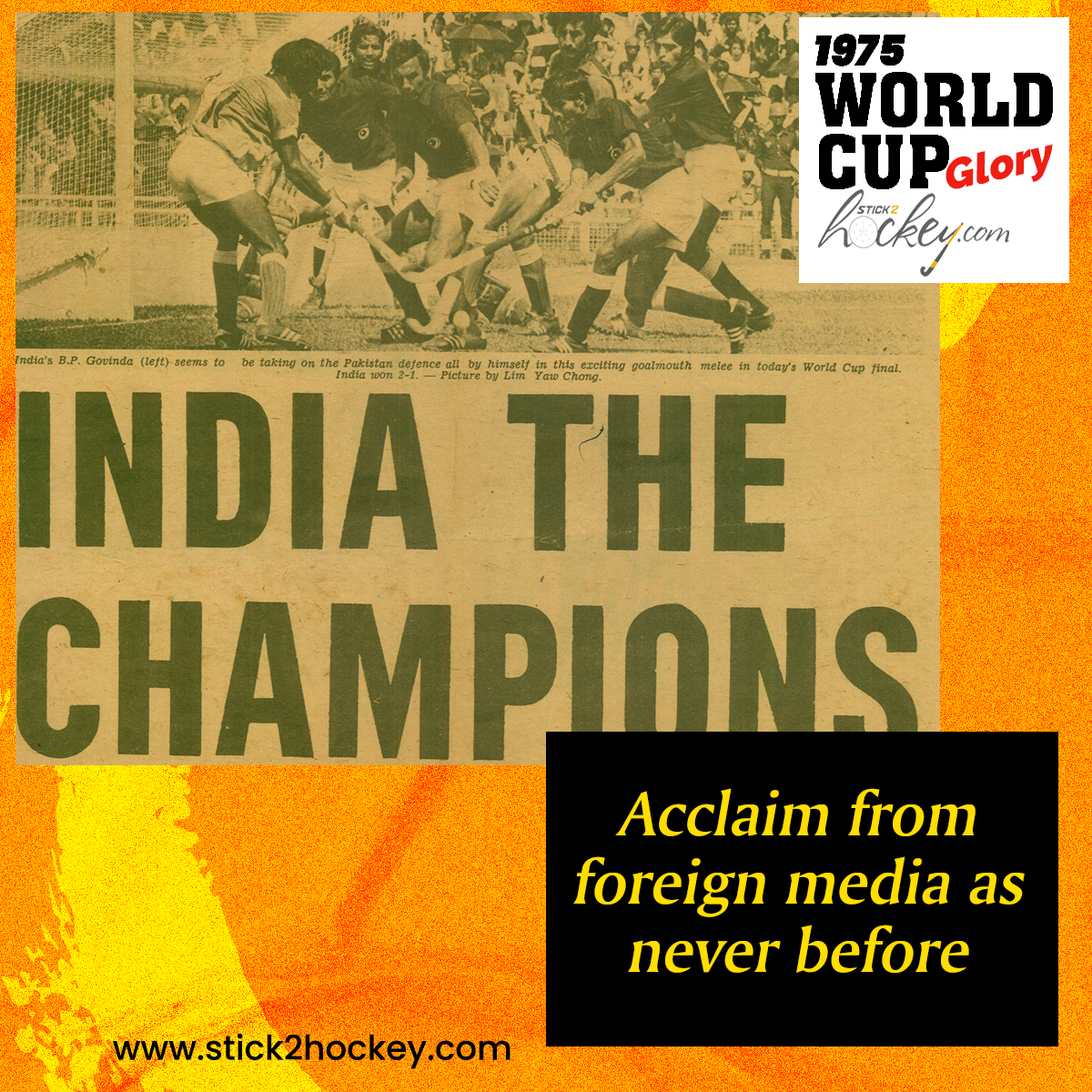
1975 World Success stores dominates media
Surjit and Ashok scored in the second half to overturn the lead and if a chance or two were converted – Shivaji Pawar’s miss from hand-shaking distance for example — India could have won on a canter.
Critics may point to a depleted Pakistan forward line after injuries had their say – Samiullah Khan their ace on the left wing had to withdraw after a collision with right-half Varinder Singh, leaving only Ishlahuddin at right winger as sole survivor of a famed quintet which included Abdul Rashid and Shahnaz Shaikh.
Then there was a touch of controversy to Ashok Kumar’s match-winner but there was no denying India the crown they deserved for a performance renowned journalist Ron Hendricks described as, “35 minutes to glory” in The Indian Express.

